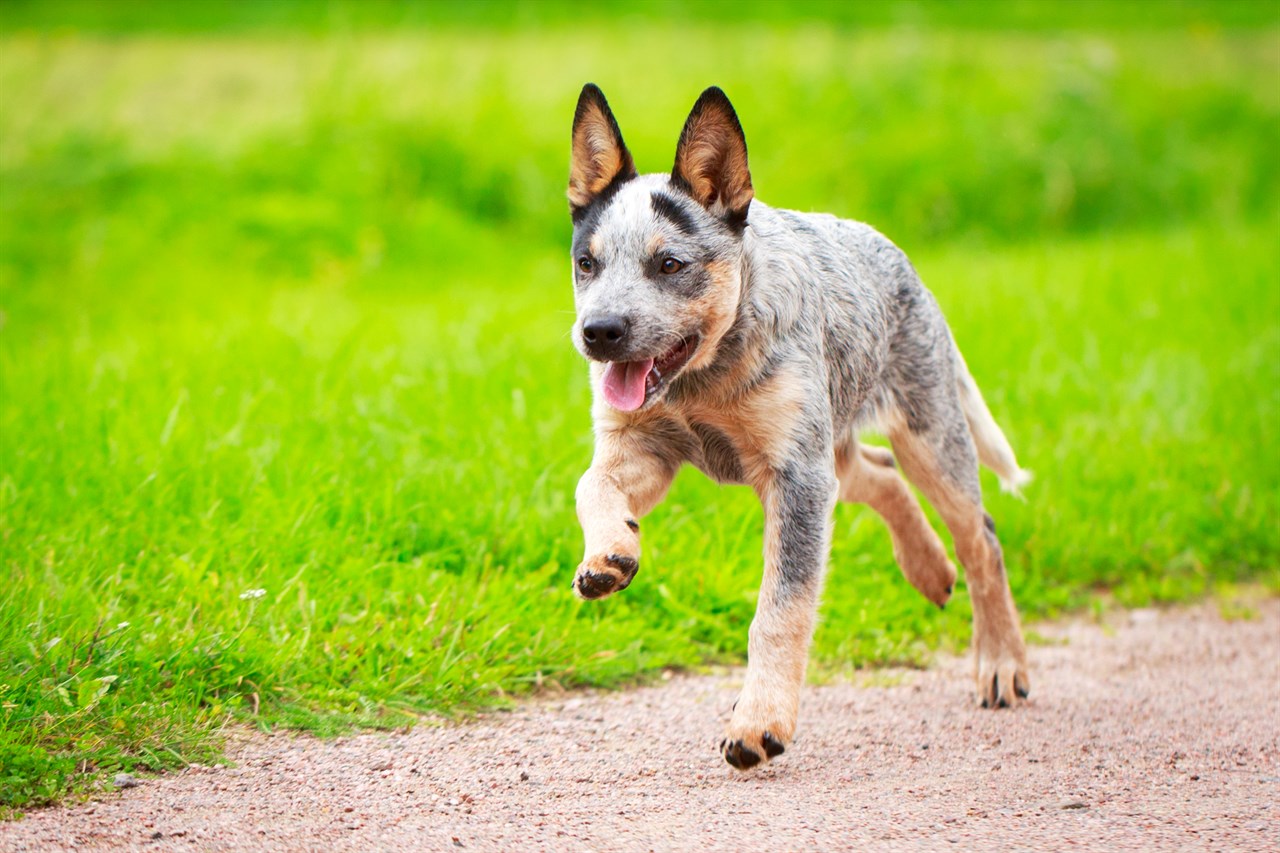Australian Cattle Dog: The Blue Heeler's Versatile Heritage

The Australian Cattle Dog, often affectionately known as the "Blue Heeler," is a remarkable breed with a rich history and a versatile set of skills. This breed has captured the hearts of many dog enthusiasts around the world, thanks to its striking appearance and exceptional intelligence. In this comprehensive piece, we will delve deep into the Australian Cattle Dog's history, characteristics, and address some intriguing questions about their origins.
Breed History
The story of the Australian Cattle Dog begins in the 19th century when European settlers arrived in Australia with their cattle herds. They faced the challenge of managing these cattle in the vast and rugged Australian outback. The need for a robust and hardworking herding dog led to the creation of the Australian Cattle Dog.
The breed's development can be primarily attributed to the efforts of Thomas Hall, a cattle rancher from New South Wales. He crossed the native Australian Dingo with various European herding dogs, including the Collie and the Dalmatian, to create a breed with the right combination of herding instinct, endurance, and resilience. The result was a dog that could withstand the harsh Australian conditions and excel at herding cattle.
Also Known As
The Australian Cattle Dog is also simply known as the Heeler or Blue heeler by lovers of the breed.
Breed Group and Size
The Australian Cattle Dog falls into the Herding Group according to the American Kennel Club (AKC) classification. They are known for their medium-sized, compact, and muscular build. Adult males typically stand between 45.7 to 50.8 centimetres at the shoulder, while females are slightly smaller, standing at 43.2 to 48.3 centimetres . Their weight typically ranges from 7.2 to 10.4 kilogrammes .
Breed Coat, Colour, and Appearance
One of the most striking features of Australian Cattle Dogs is their distinctive coat, which is dense, short, and weather-resistant. This coat serves them well in the rugged Australian terrain. They have a double coat with a straight outer layer and a soft, dense undercoat.
Australian Cattle Dogs are most commonly known for their unique blue coat colour, which can vary from blue-grey to a darker shade, often referred to as "blue mottled" or "blue speckled." Their coat can also have black, blue, or tan markings. Their ears are typically pricked, and they have alert, oval-shaped eyes that are often brown or blue, or even one of each, which is known as "cracked" eyes.
In terms of appearance, they possess a well-defined and muscular body with a straight back, sturdy legs, and a strong, medium-length tail.
What is the difference between a cattle dog and a Blue Heeler?
There is no difference between a "cattle dog" and a "Blue Heeler". The term "Blue Heeler" is a nickname often used to refer to the Australian Cattle Dog due to its blue coat and its herding ability. Essentially, "Blue Heeler" is a colloquial name for the breed.
Are Australian cattle dogs part Dingo?
Yes, Australian Cattle Dogs are indeed part Dingo. Their origins can be traced back to the crossbreeding of European herding dogs with the Australian Dingo, which contributed to their remarkable adaptability and herding skills.
Do cattle dogs have dingo DNA?
Yes, Australian Cattle Dogs have Dingo DNA in their genetic makeup, which can be traced back to their early development.
Do cattle dogs have wolf in them?
Australian Cattle Dogs do not have wolf DNA in their genetic makeup. Their ancestry primarily consists of European herding dogs, Dalmatians, and Dingos.
What two breeds make an Australian Cattle Dog?
The Australian Cattle Dog is primarily a result of crossbreeding between the Dingo and European herding dogs, with a significant influence from Collies and Dalmatians in their development.
What is the Australian Cattle Dog closest thing to a wild animal?
The Australian Cattle Dog's close genetic connection to the Dingo gives it a unique connection to the wild. While domesticated, their herding instincts and resilience in rugged environments make them one of the dog breeds that most closely resemble their wild ancestors.
In conclusion, the Australian Cattle Dog, or Blue Heeler, is a testament to the rich history of dog breeding and adaptation. This breed, born out of the necessity to handle cattle in the unforgiving Australian outback, combines the best traits of herding dogs, Dalmatians, and Dingos to create a versatile and dependable working dog. With their striking blue coats and unwavering loyalty, they continue to be cherished companions and skilled herders to this day, offering a living link to Australia's pioneering past.
Continue reading our Australian Cattle Dog in-depth articles
- Australian Cattle Dog Temperament and Behaviour
- Australian Cattle Dog Training and Socialisation
- Australian Cattle Dog Toilet Training
- Australian Cattle Dog Barking Habits
- Australian Cattle Dog Grooming Requirements
- Australian Cattle Dog Shedding Behaviour
- Australian Cattle Dog Sleeping Behaviour
- Australian Cattle Dog Diet and Feeding Requirements
- Australian Cattle Dog Average Lifespan
- Australian Cattle Dog Exercise Requirements
- Australian Cattle Dog Common Health Issues
- Australian Cattle Dog Suitability Guide
- Australian Cattle Dog Advantages
- Australian Cattle Dog Disadvantages
- Australian Cattle Dog Cost to Buy and Own
- Australian Cattle Dog Clubs and Links
- Selling Australian Cattle Dog Puppy Litters and Dogs
- Buying Australian Cattle Dog Puppies and Dogs
- Australian Cattle Dog Alternatives
Australian Cattle Dog puppies for sale
- Find Australian Cattle Dog puppies for sale in ACT
- Find Australian Cattle Dog puppies for sale in NSW
- Find Australian Cattle Dog puppies for sale in NT
- Find Australian Cattle Dog puppies for sale in QLD
- Find Australian Cattle Dog puppies for sale in SA
- Find Australian Cattle Dog puppies for sale in TAS
- Find Australian Cattle Dog puppies for sale in VIC
- Find Australian Cattle Dog puppies for sale in WA